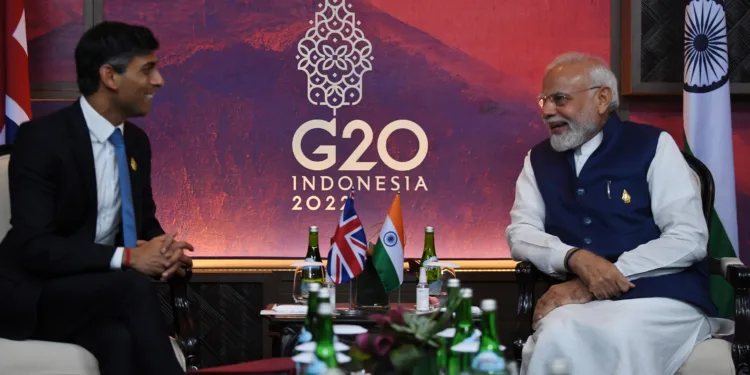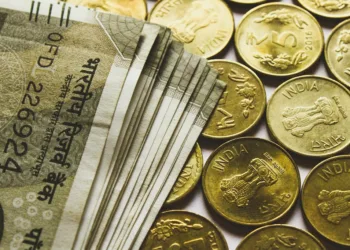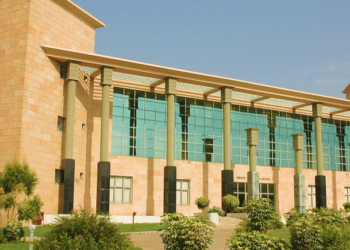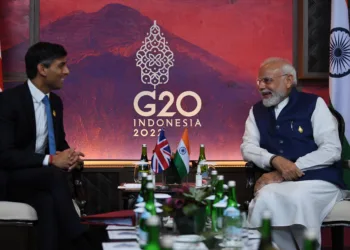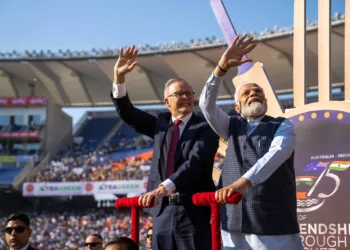BY AJIT KUMAR JHA
Never in the last 75 years since India became independent has the time been as ripe to strengthen the comprehensive strategic partnership between the UK and India as today. The UK’s departure from the European Union (EU) presents an exciting opportunity to forge a robust friendship which is bound to be seen by future historians as the golden era of India-UK relations. The trajectory of the relationship has moved 180 degrees, from “Intimate Enemies” as described during the colonial era to “Intimate Friends” today. Friendship with India, which has now overtaken the UK in terms of the size of its GDP, is much sought after by all G7 powers, including the UK.
The India-UK trade partnership was worth GBP 34 billion in 2022, growing by GBP 10 billion in one year. A UK Department for Business and Trade spokesperson said both UK and India are “committed to delivering an ambitious and mutually beneficial FTA” while adding they concluded the eighth round of talks in April.
Key favourable factors are helping forge this friendship between India and the UK. Indian PM Narendra Modi and UK
PM Rishi Sunak share great chemistry and friendship which was evident when the two met in mid-November 2022 on the sidelines of the G20 summit at Bali, Indonesia. Earlier, as soon as Sunak, with ancestral origins in India, assumed the PM’s office, PM Modi after congratulating him over the telephone tweeted: “We will work together to further strengthen our Comprehensive Strategic Partnership. We also agreed on the importance of an early conclusion of a comprehensive and balanced FTA.”
Sunak, who described himself as a “visual representation” of the historic links between the UK and India, tweeted: “UK and India share so much. I am excited about what our two democracies can achieve as we deepen our security, defence, and economic partnership in the months and years ahead.”
In a “special gesture”, PM Sunak joined a UK Cabinet Office meeting in London on February 4, 2023, between Indian National Security Adviser (NSA) Ajit Doval and his British counterpart, Tim Barrow. Doval was in London for an annual bilateral strategic dialogue with Barrow on his way back from Washington.
British PMs conventionally do not break protocol to meet NSAs. But PM Sunak made an exception. An excited Sunak highlighted the UK government’s support to deepen strategic partnerships between India and UK in trade, defence and S&T. India and the UK share a comprehensive strategic partnership and have agreed on a 2030 roadmap to enhance bilateral relations in all spheres, including defence and security.
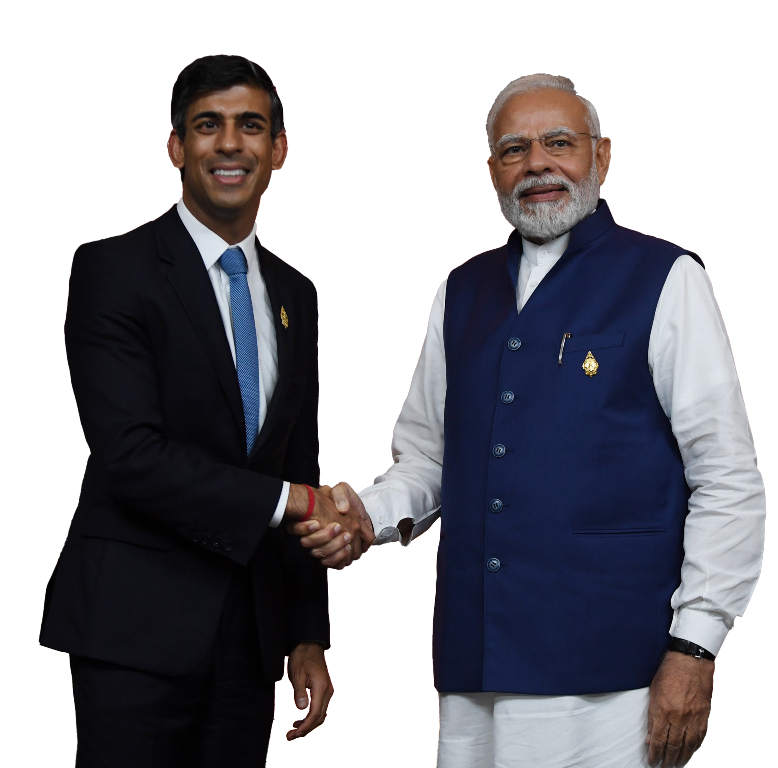
Eight rounds of FTA talks
The FTA being negotiated between the two sides has had eight rounds of talks. The UK-India friendship and FTA kicked off when Modi invited former PM Boris Johnson to be the annual guest of honour at India’s Republic Day celebrations in 2021. Johnson returned the favour by inviting Modi to the G7 summit in Cornwall, Britain. The Covid pandemic halted face-to-face diplomacy on both occasions. The pandemic delayed but did not deter the forging of a great friendship between the two leaders of the world’s oldest and largest democracies.
Johnson visited India on April 21-22, 2022. The two PMs issued a joint statement on shared security and prosperity through national resilience and reviewed progress on the India-UK roadmap towards 2030. The two leaders resolved to advance the India-UK Comprehensive Strategic Partnership agreed upon in 2021.
Widely seen as a cheerleader for closer ties with India, Johnson had a palpably close bond with Modi — someone he would often refer to as his special friend or “khaas dost”.
The two PMs pledged to achieve a “quantum leap” in the bilateral relationship as they clinched an “Enhanced Trade Partnership” as part of the 2030 UK-India roadmap, with the aim of at least doubling bilateral trade by 2030. The Modi-Sunak chemistry is bound to propel this partnership in the future. Given that both democracies face a general election in 2024, there is a greater urgency to sign the FTA.
Indian diaspora’s role in the UK
The size of the Indian diaspora and its contribution to the UK economy bolsters the friendship. Around 1.8 million Indians contribute over six percent of the UK’s economy. The existing economic relations are not true to their potential. The UK is not in the top 15 trading partners of India, although India held the 12th position in the list of the UK’s trading partners. India is the second largest investor in the UK after the US, generating 12 lakh jobs in the UK. An ambitious FTA between the two countries and expansion of the defence and security partnership are bound to take the links between the two countries to a golden era in the future.


